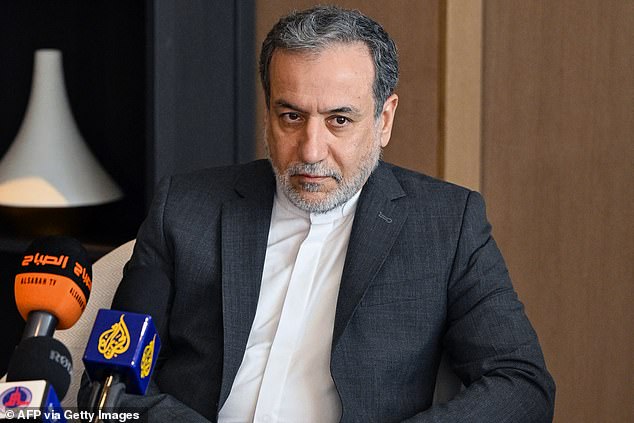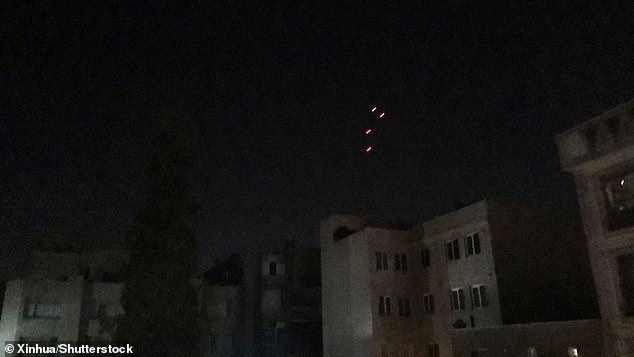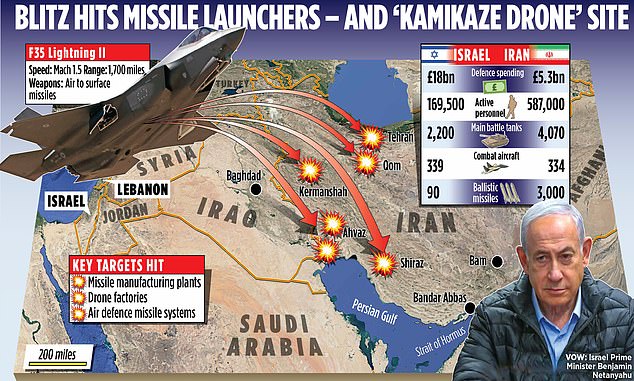Iran vowed revenge yesterday after Israel’s missile bombardment of Tehran destroyed up to 20 key military sites, including a top-secret research centre.
Foreign Minister Abbas Araghchi said Iran had “no limits” in defending its interests and was obliged to retaliate.
But amid relief that nuclear and oil facilities were spared, the United States said the airstrikes – themselves a retaliation for Iran’s missile attack on Israel earlier this month – should signal an end to direct conflict. between the two countries.
The predawn attacks killed two Iranian soldiers and two other people and marked the first time Israel has openly attacked the country.
Dozens of fighter jets attacked ballistic missile factories, air defense batteries and missile launchers. Israel launched a simultaneous attack on military targets in central and southern Syria. Among the pilots and navigators involved in the attacks on Iran were several women, praised by the Israel Defense Forces (IDF) for their bravery.
The secret research base near Tehran is believed to have been developing ‘kamikaze drone’ technology, designed to hover over a target until ordered to attack.
Dozens of fighter jets attacked ballistic missile factories, air defense batteries and missile launchers on Friday as Israel launched a missile barrage against Iran.

Foreign Minister Abbas Araghchi said Iran “has no limits” in defending its interests and is obliged to retaliate.
Officials said some of the facilities hit caused missiles to be fired into Israel on October 1.
The “precision strikes” raised tension at a time of rising violence across the Middle East, where Iranian-backed militant groups – including Hamas in Gaza and Hezbollah in Lebanon – are already at war with Israel.
US President Joe Biden was warned before the attacks and said it appeared they “hit nothing but military targets”. He added: “I hope this is the end.”
Iran had not faced sustained bombing from a foreign enemy since its war with Iraq in the 1980s. Explosions could be heard in Tehran until dawn.
On October 1, Iran launched 180 missiles at Israel in retaliation for blows against Hezbollah. They caused only minimal damage and some injuries. Israeli Prime Minister Benjamin Netanyahu said Iran had “made a big mistake.”
Israel is also believed to be behind a limited airstrike in April near a major air base in Iran that hit the radar system of a Russian-made air defense battery.
And Iran fired a wave of missiles at Israel later that month, causing minimal damage, after two Iranian generals were killed in an apparent Israeli airstrike on an Iranian diplomatic post in Syria.

Israel had attacked Iran with three waves of attacks in the early hours of Saturday morning.
The IDF said Iran has “paid the price” for attacking Israel twice, adding: “Should the Iranian regime make the mistake of starting a new round of escalation, we will be obliged to respond.” Images released by Israel’s military showed pilots and navigators preparing to depart for strikes in American-made F-15 and F-16 aircraft.
Sanam Vakil of the London-based think tank Chatham House said Israel has again demonstrated that its military precision and capabilities are superior to Iran’s. “By attacking military sites and missile facilities over nuclear and energy infrastructure, Israel is also sending a message that it is not seeking further escalation for now,” he said.
After the attacks, the streets of Iran’s capital were calm and children went to school and opened shops. Israeli opposition leader Yair Lapid criticized the decision to avoid “strategic and economic objectives”, saying on social media: “We could and should have demanded a much higher price from Iran.”
Both Britain and Germany last night urged Iran not to respond.

